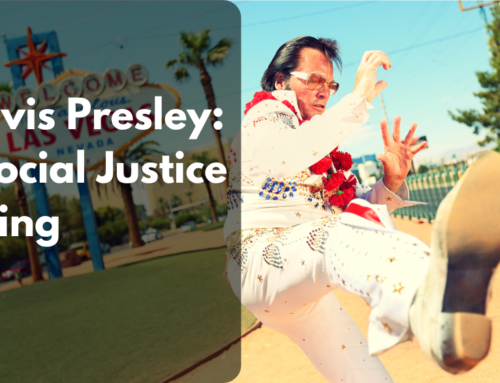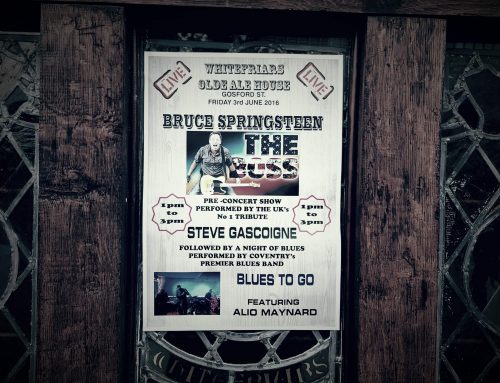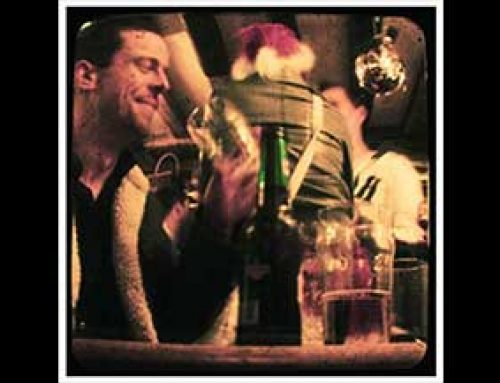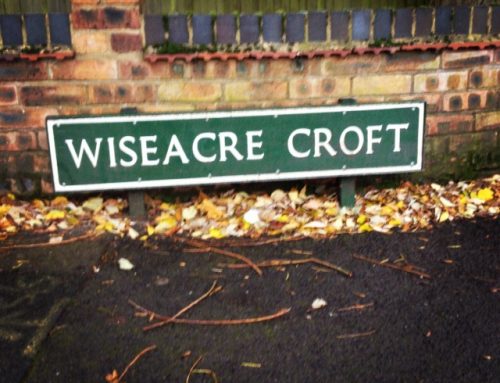Updated 30th January 2010: this may seem a bit overdue, but I’ve now added Armando Iannucci’s 9th and 10th questions that were Tweeted after I wrote my original post. In light of how yesterday’s events played out, it now seems as though my additional question for readers was a wee bit optimistic. It was based on the assumption that the former vicar of St Albion would receive a thorough grilling and be deftly evasive. In the event, a deft evasion wasn’t required as the “thorough grilling” turned out to be, at best, a gentle simmering, or possibly even a fricassée.
Blair’s remarkable transformation from Zero to Nero – as those initial physiological signs of awkward nervousness swiftly morphed into a swaggering display of unrepentant moral righteousness – seemed to be triggered by a prompt evaluation of his opponents’ capacity to do him harm. All it took was the merest hint of hesitation, deviation or lack of focus from the panel to neutralise the threat, and the opening question managed to convey all three.
It was a bit like watching Ronnie Barker in an episode of Porridge expecting to get a incandescent rollicking from Mr Mckay, only to find out that it’s Mr Barrowclough instead.
Just for once I’m going to sheepishly pop my head over the parapets and amble awkwardly into terra incognita. Yes, I’m venturing outside of my normal comfort zone of pop culture and low humour to talk about politics
Later today, the former vicar of St Albion will be giving evidence at the Iraq inquiry. I’ve got very strong opinions about this, but I’ll let you work those out for yourself.
Now, I’m not in the habit of following celebrities on Twitter, but Armando Iannucci is an exception as he’s fiendishly smart and very funny. The modern-day Moliere has been posting a series of questions on Twitter that he’d like Tony Blair to answer. For the benefit of those who don’t follow @AIannucci, don’t do Twitter or are somewhat averse to the textese-like vowel-gutting necessitated by a 140 character limit, here’s my humble attempt at translating them into English:
- Was regime change one of your aims? Alastair Campbell’s diary entry for 2nd April 2002 confirms that participants at one meeting “discussed whether the central aim was WMD or regime change” and that “TB felt it was regime change” (at Iraq inquiry, former foreign minister Jack Straw said he regarded “a foreign policy objective of regime change” as “improper and also self-evidently unlawful.”)
- In January 2003, your foreign policy adviser Sir David Manning recorded that you were “solidly with the president” about military action with or without a second UN Resolution. If this is so, then why didn’t you tell the Cabinet or parliament that you had already made up your mind? Why did you tell the Commons as late as 25th February 2003: “I do not want war. I do not believe that anyone in this House wants war. Even now we are prepared to go the extra step to achieve disarmament peacefully”?
- On 24 September 2002 you told parliament that Saddam night acquire a usable nuclear weapon within “a year or two”. No substantive Intel ever supported that claim. Explain.
- On 7th March 2003 Attorney General Lord Goldsmith sent you detailed legal advice questioning the legality of proceeding without a second UN resolution. By 17th March he’d hardened his position, so to speak, and provided unequivocal legal backing for the war. How many people helped him revise this advice? Are you happy for them to talk to the enquiry?
- Did the Attorney General’s wife play any part in this change of advice? Are you happy for her to talk to the enquiry?
- Foreign Office lawyer Elizabeth Wilmshurst’s resignation letter was censored for “security” reasons. The suppressed passage referred to Lord Goldsmith’s aforementioned change of heart over the legality of the war. Is this really a security matter? Would it be better described as an insecurity matter?
- Government legal advisers said that justifying war as an act of self-defence would be illegal as there was no evidence that Saddam was planning an imminent attack. Why, then, did you not retract the 45 minute claim?
- Why did you you present the Attorney General’s advice to the Cabinet, the House of Commons and the military as clear and unequivocal when you knew it wasn’t?
- Last December, John Prescott told New Statesman magazine: “Bush is crap. You know it, I know it, the party knows it.” Why were our troops at his disposal?
- Did you let political considerations delay proper military planning and financing, particularly over troop equipment?
Finally, a question for you:
- Do you really think the former vicar of Albion will give a straight answer to any of the above?








Leave A Comment